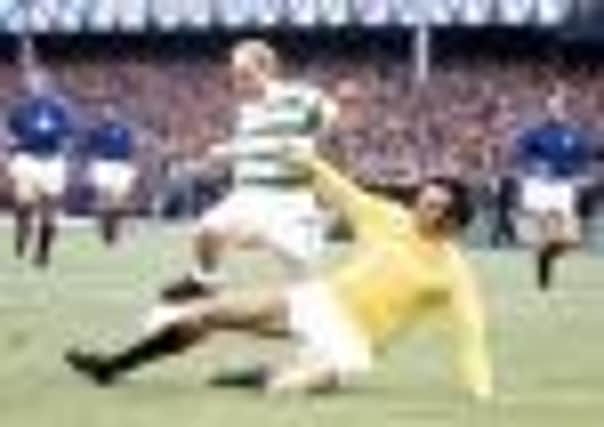Fans groups seek parity via return of League Cup


Now Supporters Direct Scotland believe it has addressed this by proposing the introduction of regional League Cup sections in a comprehensive “Fan Plan”. If adopted it would see the Glasgow clubs kick-off the season with two derbies in quick succession, as happened often in the League Cup’s heyday.
Supporters Direct believes that the four-team “mini-groups” in a revamped League Cup could dovetail with a national set-up comprising two 16-team leagues and a ten-club qualifying league, under which would be a pyramid feeder system. In doing so, every top flight team would be guaranteed to play 36 games – 30 in the league and six League Cup section matches.
Advertisement
Hide AdAdvertisement
Hide AdThe regionalised group stage of the knockout tournament would comprise sections from areas such as Glasgow, Edinburgh, Dundee, the north, Ayrshire and Fife, so the campaign would begin with a blitz of derbies that would be attractive to the TV companies and the clubs’ supporters. Winners of the groups would progress to the quarter-finals.
Four-team sections were used in the League Cup from its inception in season 1946-47 after they had been successfully deployed in the competition’s forerunner, the Southern League Cup, during the war years. The sections were used every season up to and including season 1976-77. The following season they were replaced by straight knockout before being reintroduced in season 1981-82 for three seasons. Curiously, although they were not drawn on a regional bias, Celtic and Rangers were paired together 12 times in League Cup sections.
A potential drawback to the format being floated by Supporters Direct is that, with only one team going forward from each of the eight sections, there could never again be an Old Firm final. But, with the Fan Plan built around increasing competition in Scotland, the group’s chairman Alan Harris sees that as a plus. And it might be a good week to sell that notion with the entire game feeling energised by Kilmarnock’s Scottish Communities League Cup win last Sunday.
“If one of the big two had to be knocked out it would give other teams the chance to come through to the later stages, yet one of them would still be there, so there would still be that draw,” Harris says. “When we have met [SPL chief executive] Mr [Neil] Doncaster, he has always said a move to a 16 or 18 team league would cost £20m because of the loss of the Old Firm games. He has said to us, ‘we know you don’t like what there is at present, but what would you do about it?’ We think our plan does that and the restructuring of the League Cup is a part of that. Mr Doncaster said big games would be lost across the board but we would have two Edinburgh derbies in the competition, and two in Dundee that might otherwise not be there. These would be particularly attractive to broadcasters in July because there is no English football. Equally, teams could use the games to introduce new or younger players.”
Supporters Direct Scotland will know some of its proposals are too radical to expect consideration among SPL clubs. The group champions an equal distribution of central monies in all three leagues, with each top flight club receiving 3.7 per cent. Celtic chief executive Peter Lawwell has demonstrated this week he has no appetite for prize money for the top two in the SPL being reduced from 33 per cent. Currently over 80 per cent of the money generated remains within the top flight. Supporters Direct wants to reduce that to two-thirds, just under a third then being shared equally by the second tier clubs and 6.5 per cent going to the qualifying league of ten.
“It is important to say here, though, that we are not chasing some socialist utopia,” Harris says. “The big clubs will continue to be the main forces because of the gate receipts they would generate. But we need to get attendances up at the smaller clubs and can do that by giving them a better basis to compete, which in the long run is surely better for all clubs. Some aspects we have drawn from the US sports model and what the Americans are acutely aware of is that they are selling competition.”
• Football writer Andrew Smith will host an online debate on league reconstruction on Tuesday at noon.